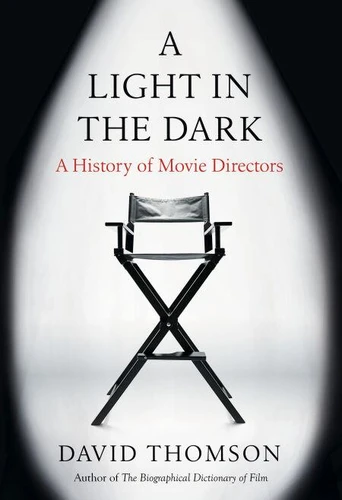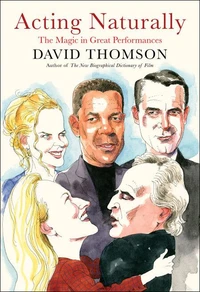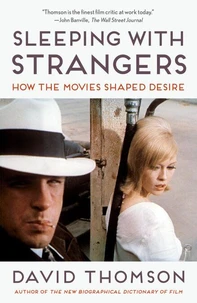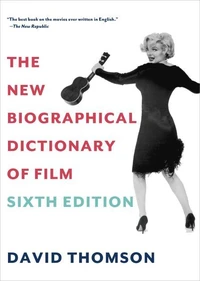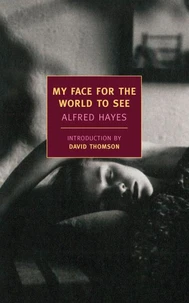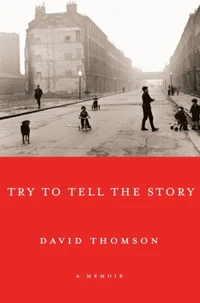A Light in the Dark. A History of Movie Directors
Par :Formats :
Disponible dans votre compte client Decitre ou Furet du Nord dès validation de votre commande. Le format ePub protégé est :
- Compatible avec une lecture sur My Vivlio (smartphone, tablette, ordinateur)
- Compatible avec une lecture sur liseuses Vivlio
- Pour les liseuses autres que Vivlio, vous devez utiliser le logiciel Adobe Digital Edition. Non compatible avec la lecture sur les liseuses Kindle, Remarkable et Sony
- Non compatible avec un achat hors France métropolitaine
 , qui est-ce ?
, qui est-ce ?Notre partenaire de plateforme de lecture numérique où vous retrouverez l'ensemble de vos ebooks gratuitement
Pour en savoir plus sur nos ebooks, consultez notre aide en ligne ici
- Nombre de pages304
- FormatePub
- ISBN978-0-593-31816-4
- EAN9780593318164
- Date de parution23/03/2021
- Protection num.Adobe DRM
- Taille889 Ko
- Infos supplémentairesepub
- ÉditeurKnopf
Résumé
From the celebrated film critic and author of The Biographical Dictionary of Film--an essential work on the preeminent, indispensable movie directors and the ways in which their work has forged, and continues to forge, the landscape of modern film. Directors operate behind the scenes, managing actors, establishing a cohesive creative vision, at times literally guiding our eyes with the eye of the camera.
But we are often so dazzled by the visions on-screen that it is easy to forget the individual who is off-screen orchestrating the entire production--to say nothing of their having marshaled a script, a studio, and other people's money. David Thomson, in his usual brilliantly insightful way, shines a light on the visionary directors who have shaped modern cinema and, through their work, studies the very nature of film direction.
With his customary candor about his own delights and disappointments, Thomson analyzes both landmark works and forgotten films from classic directors such as Orson Welles, Alfred Hitchcock, Jean Renoir, and Jean-Luc Godard, as well as contemporary powerhouses such as Jane Campion, Spike Lee, and Quentin Tarantino. He shrewdly interrogates their professional legacies and influence in the industry, while simultaneously assessing the critical impact of an artist's personal life on his or her work.
He explores the male directors' dominance of the past, and describes how diversity can change the landscape. Judicious, vivid, and witty, A Light in the Dark is yet another required Thomson text for every movie lover's shelf.
But we are often so dazzled by the visions on-screen that it is easy to forget the individual who is off-screen orchestrating the entire production--to say nothing of their having marshaled a script, a studio, and other people's money. David Thomson, in his usual brilliantly insightful way, shines a light on the visionary directors who have shaped modern cinema and, through their work, studies the very nature of film direction.
With his customary candor about his own delights and disappointments, Thomson analyzes both landmark works and forgotten films from classic directors such as Orson Welles, Alfred Hitchcock, Jean Renoir, and Jean-Luc Godard, as well as contemporary powerhouses such as Jane Campion, Spike Lee, and Quentin Tarantino. He shrewdly interrogates their professional legacies and influence in the industry, while simultaneously assessing the critical impact of an artist's personal life on his or her work.
He explores the male directors' dominance of the past, and describes how diversity can change the landscape. Judicious, vivid, and witty, A Light in the Dark is yet another required Thomson text for every movie lover's shelf.
From the celebrated film critic and author of The Biographical Dictionary of Film--an essential work on the preeminent, indispensable movie directors and the ways in which their work has forged, and continues to forge, the landscape of modern film. Directors operate behind the scenes, managing actors, establishing a cohesive creative vision, at times literally guiding our eyes with the eye of the camera.
But we are often so dazzled by the visions on-screen that it is easy to forget the individual who is off-screen orchestrating the entire production--to say nothing of their having marshaled a script, a studio, and other people's money. David Thomson, in his usual brilliantly insightful way, shines a light on the visionary directors who have shaped modern cinema and, through their work, studies the very nature of film direction.
With his customary candor about his own delights and disappointments, Thomson analyzes both landmark works and forgotten films from classic directors such as Orson Welles, Alfred Hitchcock, Jean Renoir, and Jean-Luc Godard, as well as contemporary powerhouses such as Jane Campion, Spike Lee, and Quentin Tarantino. He shrewdly interrogates their professional legacies and influence in the industry, while simultaneously assessing the critical impact of an artist's personal life on his or her work.
He explores the male directors' dominance of the past, and describes how diversity can change the landscape. Judicious, vivid, and witty, A Light in the Dark is yet another required Thomson text for every movie lover's shelf.
But we are often so dazzled by the visions on-screen that it is easy to forget the individual who is off-screen orchestrating the entire production--to say nothing of their having marshaled a script, a studio, and other people's money. David Thomson, in his usual brilliantly insightful way, shines a light on the visionary directors who have shaped modern cinema and, through their work, studies the very nature of film direction.
With his customary candor about his own delights and disappointments, Thomson analyzes both landmark works and forgotten films from classic directors such as Orson Welles, Alfred Hitchcock, Jean Renoir, and Jean-Luc Godard, as well as contemporary powerhouses such as Jane Campion, Spike Lee, and Quentin Tarantino. He shrewdly interrogates their professional legacies and influence in the industry, while simultaneously assessing the critical impact of an artist's personal life on his or her work.
He explores the male directors' dominance of the past, and describes how diversity can change the landscape. Judicious, vivid, and witty, A Light in the Dark is yet another required Thomson text for every movie lover's shelf.

